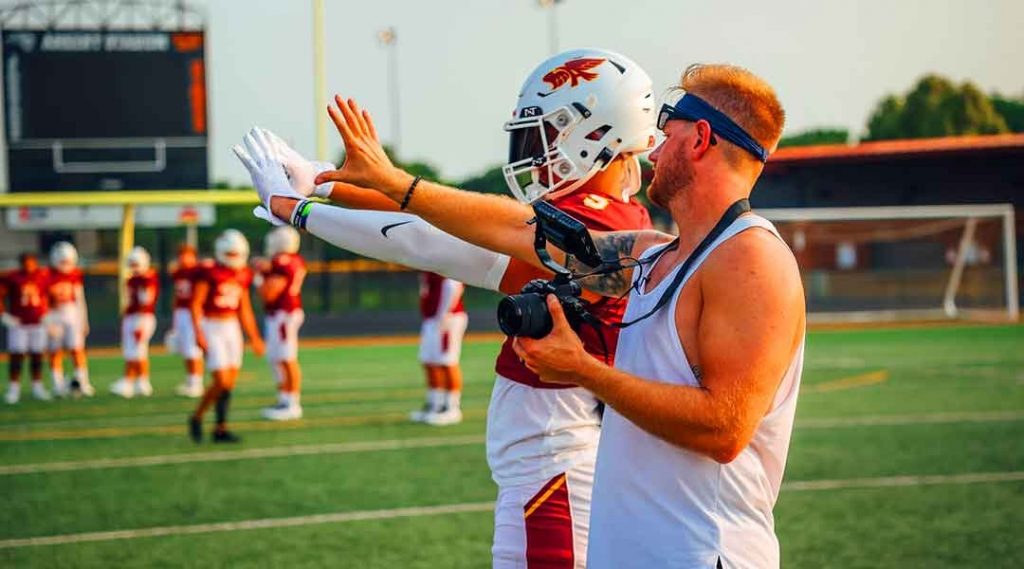Little Known Facts About The Casting Connection.
Table of ContentsThe 15-Second Trick For The Casting ConnectionThe Casting Connection Things To Know Before You Get ThisThe The Casting Connection StatementsGetting My The Casting Connection To WorkThe Of The Casting Connection
A talent scout acts as a representative for musicians, performers, professional athletes, and various other people in the enjoyment market. Their key responsibility is to promote and represent their customers' rate of interests, assisting them safe opportunities such as acting functions, modeling jobs, recommendations, music agreements, or sporting activities deals. Talent agents work very closely with their customers to understand their profession objectives and aspirations, and afterwards leverage their sector connections and knowledge to negotiate contracts, safe tryouts, and explore various opportunities for exposure and success.Talent scout typically work in busy and vibrant settings that focus on the entertainment industry. Their work environments can differ based on the dimension and sort of firm they are utilized in. Below are some common facets of the work environment of an ability agent: Skill Agencies: Most ability agents work in skill firms, which can vary from small boutique companies to huge, reputable firms.

The Single Strategy To Use For The Casting Connection
These conferences can happen in the firm's workplace, at customer events, or at exterior locations convenient for the customer. Auditions and Spreading Telephone calls: Representatives may accompany their clients to tryouts and casting phone calls, supplying support and assistance throughout the process. This can entail taking a trip to numerous places, such as production workshops, casting workplaces, or film sets.
These negotiations typically occur through phone or email, with representatives working faithfully to protect positive terms for their clients. Research and Industry Updates: Representatives stay informed about industry fads, casting telephone calls, and market needs. They conduct research on possible clients, projects, and market developments to give valuable insights to their customers.
They use e-mail, phone calls, video clip conferencing, and specialized software application to remain in touch with customers and industry get in touches with. https://anotepad.com/note/read/gc5eqjxq. High Stress and Long Hours: The show business operates limited schedules and target dates - Theatre audition scripts and librettos. Ability agents usually work lengthy hours, including nights and weekend breaks, to ensure they are readily available to respond to chances and client requires without delay
They should be critical and influential to secure the finest bargains for their clients, whether it's for a role in a film, a modeling contract, or a music deal.
The Buzz on The Casting Connection
When you recognize the difference, it comes to be really clear. Lots of people new to the acting business, and also more of those outside of it don't recognize the distinction. In a couple of words: Essentially, a talent representative is worked with by the actor to stand for the star. The actor's representative watches out for ability's passions, servicing their part (the extremely meaning of "representative").
They are worked with by the manufacturer or the end-client, and their allegiance is to that side of the manufacturing chain. However is the difference truly so simple? No. We'll require a few more words Initially, allow's clear up words "representative." In business of item advertising and advertising interactions, there are all type of representatives.

And yet, although the talent scout is paid by skill (typically through commission), they have to likewise please the manufacturer to do their work effectively. Casting Agent: Seldom in major markets, yet sometimes in smaller sized markets, some have a peek here talent representatives play both roles, at least functionally. They represent the skill (typically being paid by commission), yet they may additionally perform tryouts themselves.
Getting My The Casting Connection To Work
:max_bytes(150000):strip_icc()/agent.asp-final-2c6fe755ba534208bc93e647f2168b8f.png)
Ad agency: This company stands for the "advertiser," which is the firm that creates or markets the services or product being sold. https://sketchfab.com/castingconnection. With the flowering of media kinds over current decades, an advertising agency might produce any kind of sort of advertising interaction or audio item, varying from a radio commercial to a viral web video
These, and agents by other names are comparable to the ad agency, in that they serve the marketer, in various methods. Their service may be broader (e.g., an advertising company might do anything that is marketing-related), or could be much more certain (e. Talent Agency Database Services in the United States.g., a media company suggests and/or purchases media time and space)
The Casting Connection for Dummies
Executive recruiter. This is not a lot a title as a technique to finding and selecting brand-new skill. It refers to looking for out interesting (and ideally qualified) ability, instead than going out via the typical spreading chain and having picked options return. The looking process may include the complete world of trained, established talent, yet is not necessarily restricted to them.
From a client/producer's viewpoint, hunting for ability is a legit technique, yet most likely not their only approach. It's inherently ineffective and uncertain; the talent might have some distinct high quality, but be inexperienced, undirectable and/or undependable, and clearly, the outset of a limited manufacturing routine is not the moment to start hunting for rough diamonds.
Comments on “About The Casting Connection”